********** FOOD **********
return to top
6 kid-friendly, vegetable-packed recipes for picky eaters
Wed, 24 Apr 2024 16:00:25 +0000
Bulk up enchiladas or mac and cheese with a generous helping of vegetables for dishes even the pickiest eaters will love.
Match ID: 0 Score: 50.00 source: www.washingtonpost.com age: 1 day
qualifiers: 30.00 food, 20.00 recipes
Ravneet Gill’s recipe for brown butter and honey custard pots | The sweet spot
Fri, 26 Apr 2024 14:00:40 GMT
Rich, crisp, complex, decadent – and no pastry in sight!
There’s a pub in east London that serves one of my favourite ever desserts. The Marksman’s brown butter and honey tart is rich, crisp and full of depth – everything you could ever want from a sweet tart. Here, I’ve tried to recreate its flavour in the form of custard pots to serve at the end of dinner with an elegant grating of good-quality dark chocolate.
Discover this recipe and over 1,000 more from your favourite cooks on the new Guardian Feast app, with smart features to make everyday cooking easier and more fun
Continue reading...Contrary to popular belief, there are some wines – and even one or two reds – that you can pair with this superstar spring vegetable
Four weeks or so into the asparagus season, and are you getting bored yet? Not me: at this time of year, I could happily eat the stuff every day, and frequently do, but not always cooked the same way. And how you cook or serve your asparagus will affect which wine you drink with it.
What’s that, you say – you thought wine was supposed to be a no-no with asparagus? Like most of these so-called rules, the difficulties are massively overstated. Do you think the Germans or Austrians, mad asparagus fiends that they are, don’t drink wine with their spargel? Of course they do. In Alsace, too.
For more by Fiona Beckett, go to fionabeckett.substack.com
Continue reading...Egg cartons are labeled with all sorts of descriptors, making grocery shopping a confusing experience. Experts tell us what these labels mean and how to shop
Shopping for eggs at the grocery store can be a confusing experience. Cartons are labeled with all kinds of descriptors – natural, organic, cage-free, free-range – and some cost more at checkout. But what do they actually mean, and for ethically minded consumers, are they actually worth the money?
Protein-packed eggs are linked to relatively low carbon emissions compared with other land-based animal protein sources, but not all eggs are created equal when it comes to the environment, health or animal welfare, experts say.
Continue reading...Speaking to experts and people on the ground in Pas-de-Calais reveals a different narrative to that told by Rishi Sunak
The people from Vietnam trying to get to England on small boats across the Channel stand out from the rest of those drawn to the Pas-de-Calais coastline.
They are notably young, many just teenagers. They tend to stick together and eschew the attention of the aid workers offering food and water down at the beach or in the forests where they sleep at night.
Continue reading...Germany’s complicity with Turkey’s repressive regime worries me more than its döner diplomacy
“Nazis eat döner kebabs in secret,” must be one of the dumbest slogans I have seen at German protests against the far right. Yes, the popularity of the kebab in Germany has become something of a symbol of labour migration from Turkey after the second world war. And yes, Nazis get hungry, too. So what? If the consumption of ethnic-minority food was really an obstacle to the ideology of white supremacy, Germans would either be starved out by now or they wouldn’t vote for Alternative für Deutschland (AfD). Neither of these is the case: the kebab is the second most popular fast food among Germans, and according to polls, the AfD their second most popular political party.
Still, for the German president, Frank-Walter Steinmeier, it seems to be a sign of cosmopolitanism to promote kebab eating, so his team thought it a good idea to send him to Turkey with a whole skewer full of meat as part of an official visit this week, the first by a German president in 10 years.
Continue reading...Top chefs say the Games will rebrand French gastronomy as a showcase for plant-based food
It will boast the world’s biggest salad bar, offer fans vegetarian hotdogs and bring in up to half a million bananas by boat to meet athletes’ insatiable demand for the fruit while avoiding the carbon footprint of air travel.
As part of its efforts to cut carbon emissions, the Paris Olympics will make history by offering more vegetarian cuisine than in any Games.
Continue reading...This is the sort of food invented for British people that you’d have got at a Cantonese restaurant back in 1994
Off to Canterbury for a shufti around the cathedral, a meander through its pretty streets and a spot of lunch at Sekkoya, a vast, gorgeous-looking new pan-Asian restaurant on the Riverside next to an Everyman Cinema, a crazy golf venue and a branch of Heavenly Desserts. The restaurant’s sleek website offers all sorts of bold statements about this hot dining experience (regular readers will be aware that I delight in this kind of Vogon poetry), claiming that it will take us on a “gastronomic journey throughout Asia that transcends ordinary flavours”, and offering cocktails that will “awaken your senses”.
The website emotes grandly in this way for many more yards, so much so, in fact, that I suspect AI. Only a non-sentient being could describe Canterbury’s Riverside as a “vibrant new lifestyle district”, when it’s just an elevated patch of concrete. Maybe Sekkoya is entitled to be cocky, though, because it’s clearly the classiest venue for miles: the place is bedecked in sea-green velour, with shiny floors, pale tan leather seats and an impressive “mural” skylight that gives the impression that you’re dining in a rainforest. Fans of the opulent Chinese restaurant chain Tattu, which is especially big in Manchester, Birmingham and Leeds, will recognise dashes of the modern, high-octane glamour that delights Instagram feeds. Add beautiful bathrooms, Kool & The Gang and George Benson on the stereo, and lovely, chipper serving staff, and they clearly mean business here.
Continue reading...Open letter calls for green policies that empower farmers, after months of protests jeopardise future of flagship biodiversity deal
The EU’s nature restoration law will only work if it is enacted in partnership with farmers, a group of leading scientists has said, after months of protests have pushed the proposals to the brink of collapse.
In an open letter, leading biodiversity researchers from across the world said that efforts to restore nature are vital for guaranteeing food supplies – but farmers must be empowered to help make agriculture more environmentally friendly if the measures are to succeed.
Continue reading...About 1,000 US troops will support the military construction efforts, but Joe Biden has ordered them not to set foot on the Gaza shore
US troops have begun construction of a maritime pier off the coast of Gaza that aims to speed the flow of humanitarian aid into the territory, the Pentagon has said, but the complex plan to bring more desperately needed food to Palestinian civilians is still mired in fears over security and how the aid will be delivered.
“I can confirm that US military vessels, to include the USNS Benavidez, have begun to construct the initial stages of the temporary pier and causeway at sea,” Pentagon spokesperson Maj Gen Patrick Ryder told reporters.
Continue reading...The problem is that the public eye is ruinous, especially for women, says Dr Catherine Merrick
The headline on Gaby Hinsliff’s article (19 April) reads “Meghan’s gone from royal upsetter to tradwife in three short years. Given what’s out there, you’d do the same”.
Well, no, I wouldn’t. I’d just erase myself from the public eye: the one thing she cannot or will not do. For the problem reflected in this article is not jam – Meghan Markle’s or anyone else’s. Jam is not the problem. (Which may or may not be a line from Taylor Swift’s new album...)
Continue reading...Like countless other hostilities, the stealthy Israeli missile and drone strike on Iran doesn’t risk war. It is war.
The post Israel Attack on Iran Is What World War III Looks Like appeared first on The Intercept.
The state says EMTALA, a law barring discrimination in emergency medical care, interferes with its abortion ban.
The post Idaho Goes to the Supreme Court to Argue That Pregnant People Are Second-Class Citizens appeared first on The Intercept.
U.S. military service members interviewed for a congressional inquiry said intelligence reports about how bad the situation is were being suppressed.
The post U.S. Troops in Niger Say They’re “Stranded” and Can’t Get Mail, Medicine appeared first on The Intercept.
A weekly email from Yotam Ottolenghi, Meera Sodha, Felicity Cloake and Rachel Roddy, featuring the latest recipes and seasonal eating ideas
Each week we’ll send you an exclusive newsletter from our star food writers. We’ll also send you the latest recipes from Yotam Ottolenghi, Nigel Slater, Meera Sodha and all our star cooks, stand-out food features and seasonal eating inspiration, plus restaurant reviews from Grace Dent and Jay Rayner.
Sign up below to start receiving the best of our culinary journalism in one mouth-watering weekly email.
Continue reading...From baroque music events to medieval architecture and delicious Adriatic cuisine, Croatia has something for everyone
Croatia’s fabulous mishmash of cultures – from ancient Greeks to Romans, Venetians, Austrians, Hungarians and Italians – has left a rich legacy all around the country. You’ll see it in the Venetian architecture of Rovinj, Korčula, Dubrovnik and Hvar, the Habsburg townhouses of Zagreb and Opatija, and the ancient Roman ruins of Istria and Dalmatia. You’ll taste it in the delicious cuisine where the Adriatic and central Europe meet and mingle.
You’ll hear it when top-flight performers bring their magic to the Dubrovnik Summer Festival, the Split Summer Festival and the baroque music festivals of Korčula and Varaždin. Sultry Dalmatian summer nights echo to the sound of polyphonic klapa singers whose a cappella music makes the skin tingle. The klapa festival in the beautiful Dalmatian coastal town of Omiš every July is one of the summer’s unmissable events.
Continue reading...Do you enjoy exploring the cobbled streets of historic towns, or is spending long days stretched out on the beach more your thing? Answer these questions to find out your Croatian holiday persona
Find out more by visiting croatia.hr
Continue reading...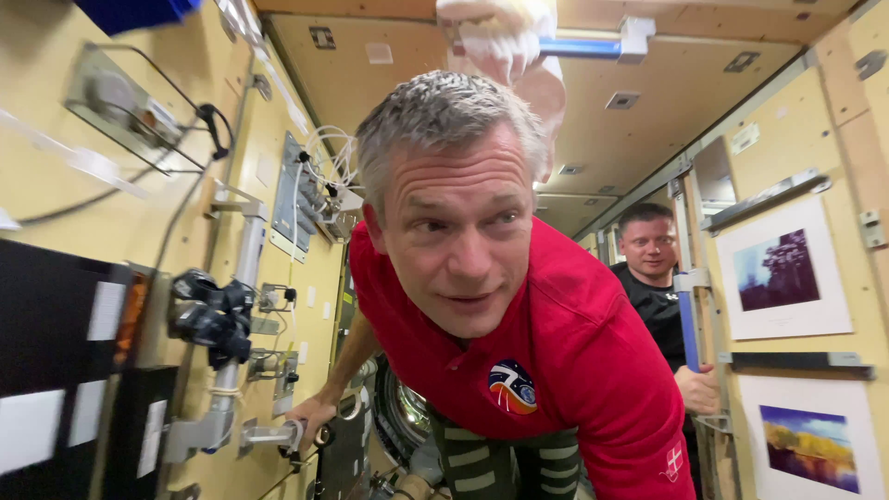 Video:
00:07:30
Video:
00:07:30
On the last day of his Huginn mission, ESA astronaut Andreas Mogensen takes us on a tour of the place he called home for 6 months: the International Space Station. From the beautiful views of Cupola to the kitchen in Node 1 filled with food and friends and all the way to the science of Columbus, the Space Station is the work and living place for astronauts as they help push science forward.
Style, with substance: what’s really trending this week, a roundup of the best fashion journalism and your wardrobe dilemmas solved, direct to your inbox every Thursday
Style, with substance: what’s really trending this week, a roundup of the best fashion journalism and your wardrobe dilemmas solved, delivered straight to your inbox every Thursday
Explore all our newsletters: whether you love film, football, fashion or food, we’ve got something for you
Continue reading...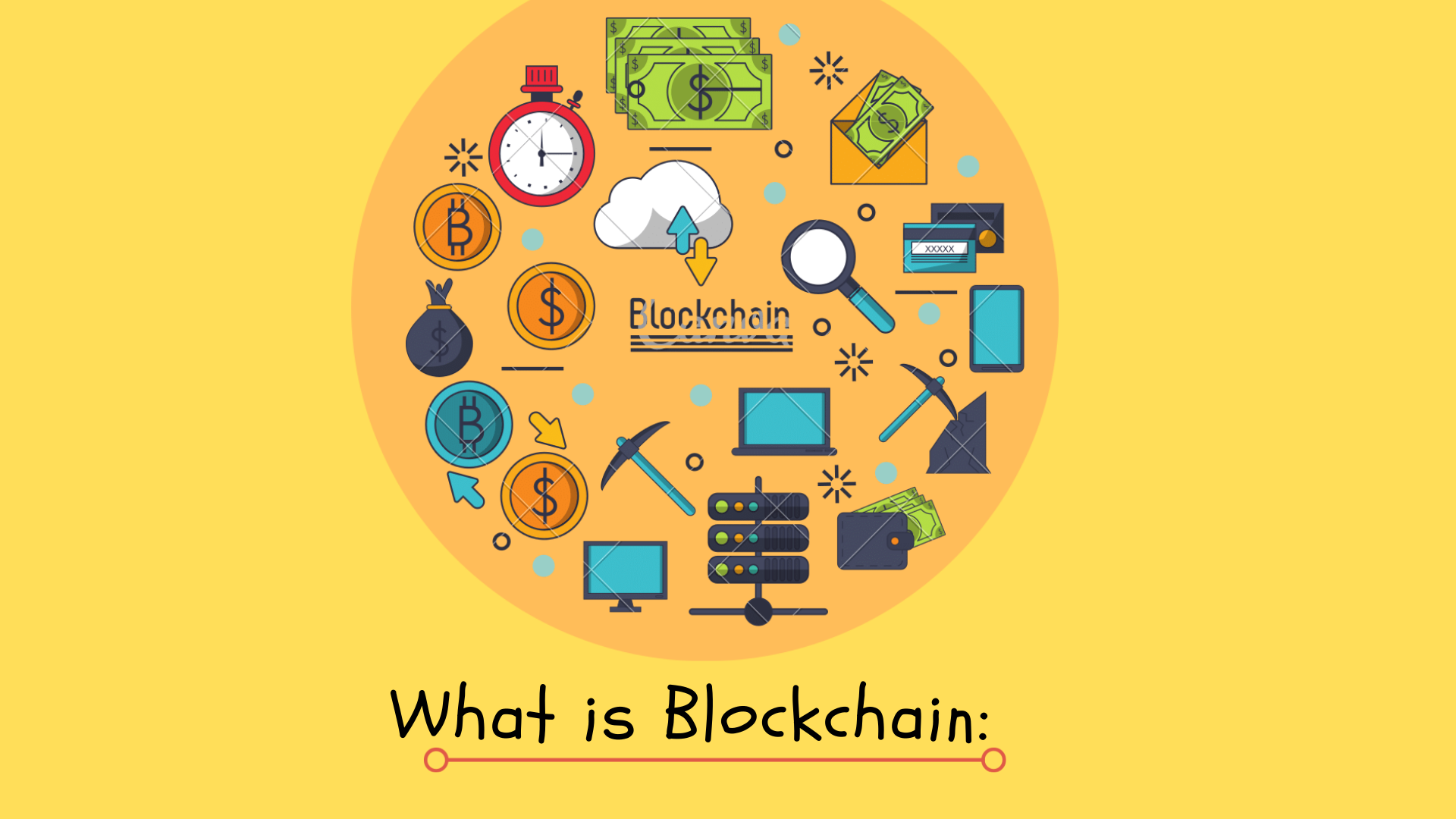 |
Imagine a world in which you can do transactions and many other things without having to give your personal information. A world in which you don’t need to rely on banks or governments anymore. Sounds amazing, right? That’s exactly what blockchain technology allows us to do.
It’s like your computer’s hard drive. blockchain is a technology that lets you store data in digital blocks, which are connected together like links in a chain.
Blockchain technology was originally invented in 1991 by two mathematicians, Stuart Haber and W. Scot Stornetta. They first proposed the system to ensure that timestamps could not be tampered with.
A few years later, in 1998, software developer Nick Szabo proposed using a similar kind of technology to secure a digital payments system he called “Bit Gold.” However, this innovation was not adopted until Satoshi Nakamoto claimed to have invented the first Blockchain and Bitcoin.
A blockchain is a distributed database shared between the nodes of a computer network. It saves information in digital format. Many people first heard of blockchain technology when they started to look up information about bitcoin.
Blockchain is used in cryptocurrency systems to ensure secure, decentralized records of transactions.
Blockchain allowed people to guarantee the fidelity and security of a record of data without the need for a third party to ensure accuracy.
To understand how a blockchain works, Consider these basic steps:
Let’s get to know more about the blockchain.
Blockchain records digital information and distributes it across the network without changing it. The information is distributed among many users and stored in an immutable, permanent ledger that can't be changed or destroyed. That's why blockchain is also called "Distributed Ledger Technology" or DLT.
Here’s how it works:
And that’s the beauty of it! The process may seem complicated, but it’s done in minutes with modern technology. And because technology is advancing rapidly, I expect things to move even more quickly than ever.
Even though blockchain is integral to cryptocurrency, it has other applications. For example, blockchain can be used for storing reliable data about transactions. Many people confuse blockchain with cryptocurrencies like bitcoin and ethereum.
Blockchain already being adopted by some big-name companies, such as Walmart, AIG, Siemens, Pfizer, and Unilever. For example, IBM's Food Trust uses blockchain to track food's journey before reaching its final destination.
Although some of you may consider this practice excessive, food suppliers and manufacturers adhere to the policy of tracing their products because bacteria such as E. coli and Salmonella have been found in packaged foods. In addition, there have been isolated cases where dangerous allergens such as peanuts have accidentally been introduced into certain products.
Tracing and identifying the sources of an outbreak is a challenging task that can take months or years. Thanks to the Blockchain, however, companies now know exactly where their food has been—so they can trace its location and prevent future outbreaks.
Blockchain technology allows systems to react much faster in the event of a hazard. It also has many other uses in the modern world.
Blockchain technology is safe, even if it’s public. People can access the technology using an internet connection.
Have you ever been in a situation where you had all your data stored at one place and that one secure place got compromised? Wouldn't it be great if there was a way to prevent your data from leaking out even when the security of your storage systems is compromised?
Blockchain technology provides a way of avoiding this situation by using multiple computers at different locations to store information about transactions. If one computer experiences problems with a transaction, it will not affect the other nodes.
Instead, other nodes will use the correct information to cross-reference your incorrect node. This is called “Decentralization,” meaning all the information is stored in multiple places.
Blockchain guarantees your data's authenticity—not just its accuracy, but also its irreversibility. It can also be used to store data that are difficult to register, like legal contracts, state identifications, or a company's product inventory.
Blockchain has many advantages and disadvantages.
I’ll answer the most frequently asked questions about blockchain in this section.
Blockchain is not a cryptocurrency but a technology that makes cryptocurrencies possible. It's a digital ledger that records every transaction seamlessly.
Yes, blockchain can be theoretically hacked, but it is a complicated task to be achieved. A network of users constantly reviews it, which makes hacking the blockchain difficult.
Coinbase Global is currently the biggest blockchain company in the world. The company runs a commendable infrastructure, services, and technology for the digital currency economy.
Blockchain is a decentralized technology. It’s a chain of distributed ledgers connected with nodes. Each node can be any electronic device. Thus, one owns blockhain.
Bitcoin is a cryptocurrency, which is powered by Blockchain technology while Blockchain is a distributed ledger of cryptocurrency
Generally a database is a collection of data which can be stored and organized using a database management system. The people who have access to the database can view or edit the information stored there. The client-server network architecture is used to implement databases. whereas a blockchain is a growing list of records, called blocks, stored in a distributed system. Each block contains a cryptographic hash of the previous block, timestamp and transaction information. Modification of data is not allowed due to the design of the blockchain. The technology allows decentralized control and eliminates risks of data modification by other parties.
Blockchain has a wide spectrum of applications and, over the next 5-10 years, we will likely see it being integrated into all sorts of industries. From finance to healthcare, blockchain could revolutionize the way we store and share data. Although there is some hesitation to adopt blockchain systems right now, that won't be the case in 2022-2023 (and even less so in 2026). Once people become more comfortable with the technology and understand how it can work for them, owners, CEOs and entrepreneurs alike will be quick to leverage blockchain technology for their own gain. Hope you like this article if you have any question let me know in the comments section
FOLLOW US ON TWITTER
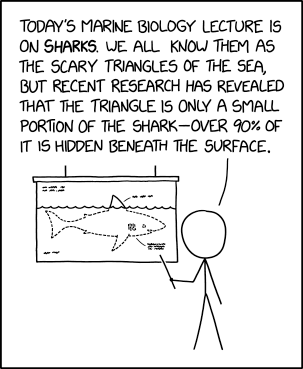
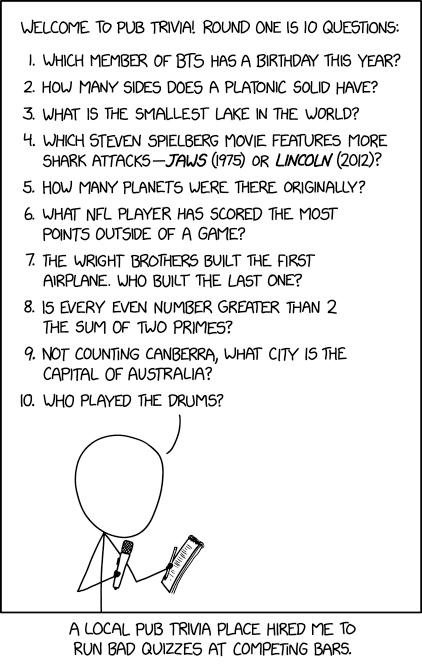
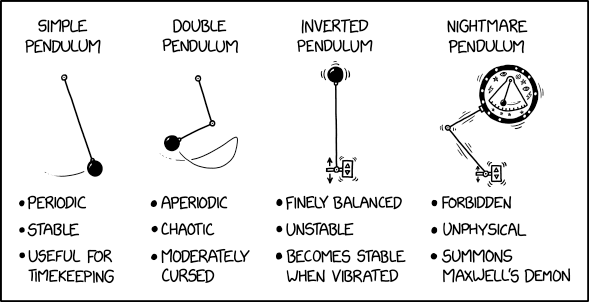
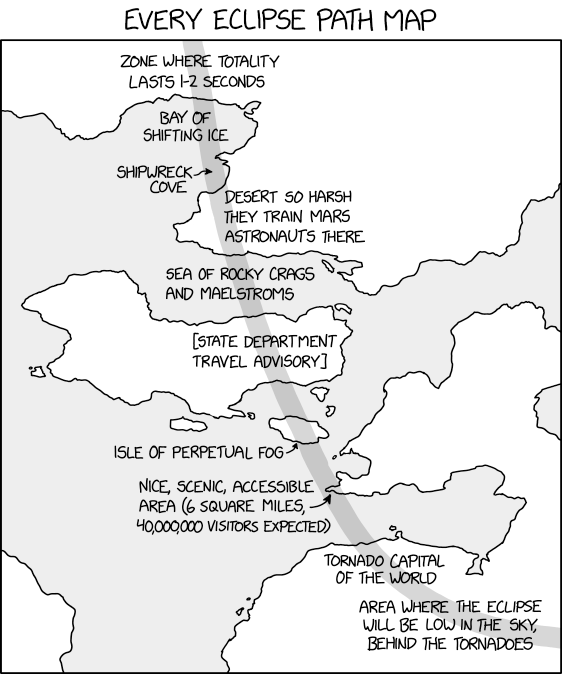
Evidence points to Absolute Standards as the source of a lethal drug the Trump administration used to restart federal executions after 17 years.
The post “Little Home Market”: The Connecticut Company Accused of Fueling an Execution Spree appeared first on The Intercept.
Fatima has taken drastic action to cure Sade’s chronic lateness. Sade says she doesn’t need her hand holding. You decide whose time is up
Find out how to get a disagreement settled or become a juror
I know I’m perennially late but by changing the clocks, Fatima makes me feel infantilised
Sade hasn’t changed all the clocks back. I think on a subconscious level she knows it actually helps her
Continue reading...The state says EMTALA, a law barring discrimination in emergency medical care, interferes with its abortion ban.
The post Idaho Goes to the Supreme Court to Argue That Pregnant People Are Second-Class Citizens appeared first on The Intercept.
If the courts agree to vacate the conviction, Lucio will have spent 16 years on death row for a crime that never happened.
The post A Prosecutor Asked Texas to Kill Melissa Lucio. Now He Says She Should Be Freed. appeared first on The Intercept.
The sweeping foreign aid package passed by congress has drawn the ire of China, but billions of dollars will actually stay in the US
Taiwan’s president Tsai Ing-wen has praised the US Congress for passing a sweeping foreign aid package this week which included arms support for the island, and has drawn the ire of China.
After months of delays and contentious debate, the bill was signed into law by Joe Biden on Wednesday. Described as $95bn in aid for Ukraine, Israel and Taiwan, the legislation actually contains provisions that broadly affect many parts of the Asia-Pacific, while also spending billions of dollars at home in America.
Continue reading...A measure passed by the House seeks to block Americans from traveling to Iran on U.S. passports.
The post House Responds to Israeli-Iranian Missile Exchange by Taking Rights Away from Americans appeared first on The Intercept.
A bill passed by Congress and signed by Biden requires owner ByteDance to sell or face a US ban – it’s its biggest threat yet
The House of Representatives passed a bill that would require TikTok owner ByteDance to sell the social media platform or face a total ban in the United States. The Senate passed it less than a week later. Joe Biden signed it a day after the Senate voted yes.
TikTok is facing its biggest existential threat yet in the US. The app was banned in Montana last year, but courts found that prohibition unconstitutional, and it never went into effect.
Continue reading...President says legislation is ‘going to make the world safer’ after months of congressional gridlock threatened support for Kyiv
Joe Biden has signed into law a bill that rushes $95bn in foreign aid to Ukraine, Israel and Taiwan, a bipartisan legislative victory he hailed as a “good day for world peace” after months of congressional gridlock threatened Washington’s support for Kyiv in its fight to repel Russia’s invasion.
The Senate overwhelmingly passed the measure in a 79 -18 vote late on Tuesday night, after the package won similarly lopsided approval in the Republican controlled House, despite months of resistance from an isolationist bloc of hardline conservatives opposed to helping Ukraine.
Continue reading...The White House brushes off accusations of hypocrisy, courting TikTok while seeking to ban it.
The post As Biden Cheers TikTok Ban, White House Embraces TikTok Influencers appeared first on The Intercept.
Supporters worry Khan’s life is in danger and with good reason: The military has a long history of killing deposed leaders.
The post Chuck Schumer Privately Warns Pakistan: Don’t Kill Imran Khan in Prison appeared first on The Intercept.
The blanket suspension of student protesters casts “serious doubt on the University’s respect for the rule-of-law values that we teach,” 54 law professors wrote.
The post Columbia Law School Faculty Condemn Administration for Mass Arrests and Suspensions appeared first on The Intercept.
The smears spurred Austrian police to raid Islamophobia scholar Farid Hafez’s family home. Then the terrorism charges fell apart.
The post Lawsuit Links Wild UAE-Financed Smear Campaign to George Washington University appeared first on The Intercept.
“Yes I’m a Republican and I exclusively supported John through the Jewish community for his principled actions supporting Israel.”
The post Since October, Sen. John Fetterman Has Been Building a Roster of Republican Donors appeared first on The Intercept.
U.S. military service members interviewed for a congressional inquiry said intelligence reports about how bad the situation is were being suppressed.
The post U.S. Troops in Niger Say They’re “Stranded” and Can’t Get Mail, Medicine appeared first on The Intercept.
The university suspended three students out of hundreds participating in an on-campus encampment to protest the Israeli government.
The post Columbia Suspends Ilhan Omar’s Daughter One Day After Omar Grilled School Administrators appeared first on The Intercept.
Parties appearing before the Supreme Court can fund the groups that file briefs supporting their arguments — and almost never have to disclose it.
The post The Gaping Hole in Supreme Court Rules for Tracking Links Between Litigants and Influence Groups appeared first on The Intercept.
In congressional testimony, school administrators also said they are investigating pro-Israel and pro-Palestine professors.
The post Columbia Suspended Two Students for Assault on Gaza Rally, School Says in Antisemitism Hearing appeared first on The Intercept.
RSS Rabbit links users to publicly available RSS entries.
Vet every link before clicking! The creators accept no responsibility for the contents of these entries.
Relevant
Fresh
Convenient
Agile
We're not prepared to take user feedback yet. Check back soon!